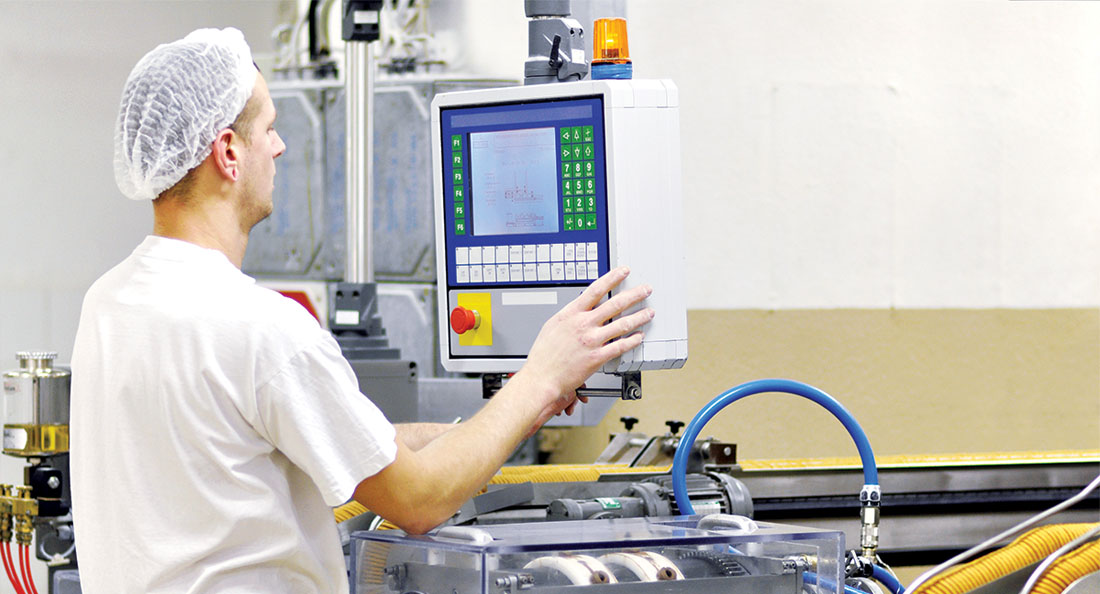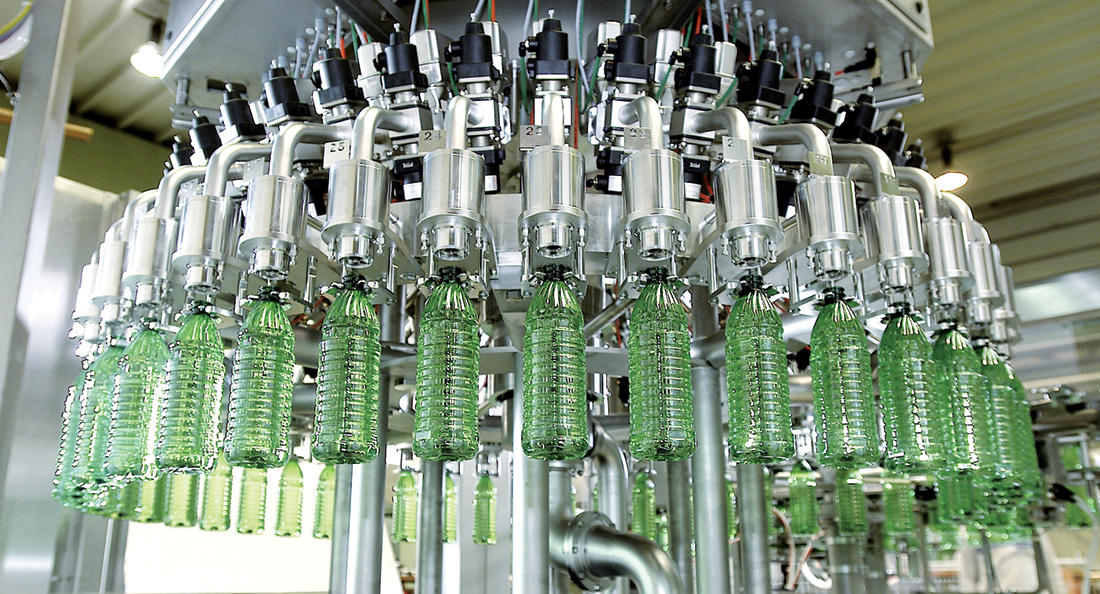Based in the small town of Bundaberg in Queensland, Bundaberg Brewed Drinks has been making some of Australia’s most popular non-alcoholic beverages since the 1960s.
Over the past few years, BSC’s Bundaberg branch has been working with the beverage company as a trusted distributor of industrial products and services. BSC Sales Representative James Mcfarlane regularly checks on Bundaberg Brewed Drinks’ production plant to make sure the plant is well-supplied with their required products.
It was during one of these routine visits that Bundaberg Brewed Drinks Engineering Manager, Daniel Engelbrecht, sought James’ advice on finding suitable roller chains for the rinsing machines – which are used to wash up to 400,000 of the company’s iconic ‘stubby’ bottles every day.
The 60-metre long chain houses the cleats and rubbers that hold the bottles upside down while water sprays rinse the bottles. As Daniel explains, the existing heavy-duty coated chains tended to get rusted in the presence of water and chemicals and wore out quickly.
“The chain operates in a very wet area so we cannot use mild steel or even hard steel chains because these get rusted and the rust can get washed up into the bottles. We also cannot lubricate the chains as we do not want to wash the bottles with greasy water. Previously, we have been using chains with special coatings, but the chemicals we use for washing the bottles attack the coating and it shortens the chains’ life,” says Daniel.
James’ recommendation to Daniel was to use stainless steel Diamond chains, which could provide the desired level of corrosion resistance, while being strong enough to withstand the wear.
“As the roller chains go over the sprockets, they turn 270 degrees in the linear direction as well as 270 degrees sideways. The twisting movement coupled with the chain rubbing on the plate resulted in the wearing down of the chain’s corrosion protection coating. Daniel and his team had not had a good experience with their previous chains as the coating would wear quickly due to this, causing the chains to corrode sooner,” says James. “The Diamond stainless steel chains have excellent corrosion resistance in addition to offering wear resistance that the Bundaberg team was looking for to get sufficient life out of their chains. The corrosion resistance of Diamond’s stainless steel was outlasting the previous coated chains and they were not experiencing that same wear removal of the chain’s protective feature” he adds.
Since switching to the Diamond stainless steel chains, Bundaberg Brewed Drinks has been able to extend the service life of the chains and Daniel says he is happy he took James’ advice.
“We have been using the Diamond chains for the past nine months and they are still performing very well. In the past, we were lucky to get six months from a chain,” says Daniel. “The chains are also very cost-competitive, so we are very happy with the performance overall.”
He says the collaboration between Bundaberg Brewed Drinks and BSC has been very successful over the years.
“We have worked with other suppliers before but the solutions they offered were not what we were looking for. The BSC team has experts specialising in different fields, so they can provide us with the right solution every time.”
Diamond produces a range of single-pitch and double-pitch stainless steel chains to suit different applications. Troy Markland, BSC’s National Product Manager for Power Transmission says the most common Diamond stainless steel chains are the 300 series.
“The 300 series stainless steel chains offer the most corrosion resistance and are the most common chains in the food and beverage applications. The 600 series also provide very good corrosion resistance, but they have a higher wear resistance,” he explains.
Apart from the off-the-shelf chains available at all BSC branches, Troy says BSC can also order special chains from the factory when a customer requires customised chain lengths, chains with special attachments or chains that are paired together.
“The chains provided to Bundaberg Brewed Drinks are 300 series chains with extended pins to enable them to accommodate the bottle grippers. We ordered it specifically from overseas for Bundaberg Brewed Drinks to use for their bottle rinsing application,” he adds.
When it comes to the maintenance of chains drive systems, Troy says it is crucial to keep the sprockets in good condition.
“Extended chain life can be achieved by ensuring sprockets are in good condition. The sprockets should be inspected at every chain replacement or at set maintenance intervals.”
Correct tension of the chain is another vital aspect in the maintenance process, Troy elaborates.
“Through periodic measurement of the length of the chain and comparing it to the maximum allowable elongation for that particular chain, you can prevent any unexpected failures. The chain should be replaced when elongation reaches 1.5% for length-matched, indexing, vertical orientation, no slack take-up or fixed centre drives or 3% for standard drives,” he says. “For example, the chain drive in the bottle rinsing machine is a critical drive because if the chain elongates excessively, it can no longer grip the bottles properly and the bottles will fall and smash.”
Troy says the BSC team are all well experienced to assist customers with the maintenance of their chain drives.
“We have the technical capability to assist and determine sprocket conditions. Where needed, we can also educate customers on the correct way of inspecting the sprockets, to ensure maximum life for their equipment,” he concludes.
Types of Diamond Stainless Steel Chains:
- AP Series Stainless Steel Chain: These chains are assembled using 300 series link plates, bushings, and rollers along with a precipitation-hardened 600 series stainless steel pin. This combination increases the wear life of the chain. AP stainless steel chains are well suited for food processing and are approved by the FDA.
- 300 Series Stainless Steel Chain: These chains are assembled using only 300 series components. They have excellent corrosion resistance and very low magnetic permeability. The 300 series chain is a “non-sparking” chain.
- 600 Series Stainless Steel Chain: These chains are assembled using 300 series link plates with pins, bushings, and rollers made from 600 series precipitation-hardened stainless steel.




